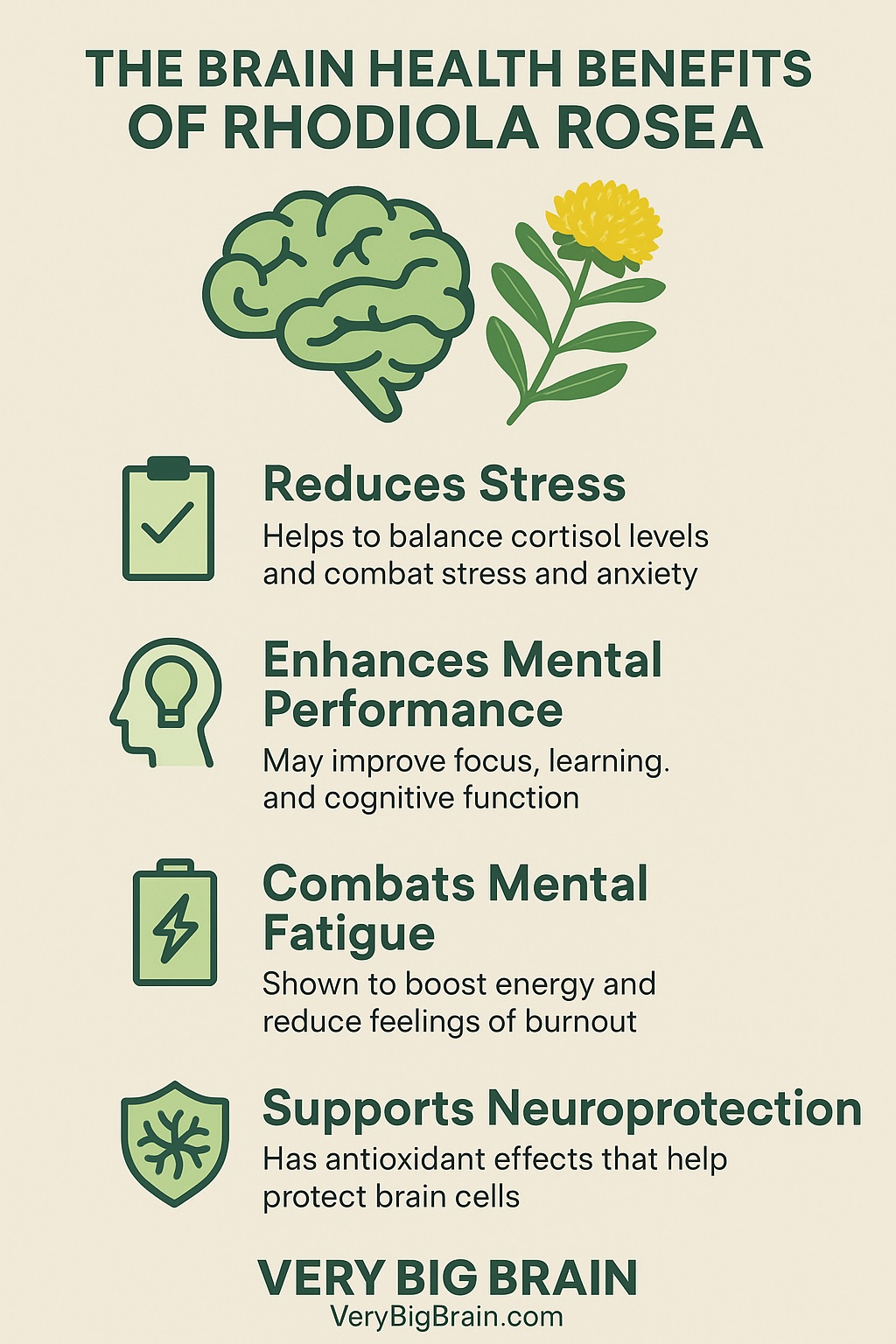
Rhodiola Rosea, often referred to as the “golden root,” is a powerful adaptogenic herb used for centuries in traditional medicine systems across Europe and Asia. Adaptogens are natural substances that help the body adapt to stress and restore balance — and Rhodiola is one of the most celebrated among them. In today’s high-pressure world, it’s no wonder this herb has earned a spot in the brain health and nootropic spotlight.
One of Rhodiola’s most well-known effects is its ability to reduce stress by modulating cortisol, the body’s primary stress hormone. By helping to keep cortisol in check, Rhodiola can improve the body’s ability to stay calm and focused under pressure — making it especially useful for mental performance during demanding tasks or emotionally charged situations.
In addition to stress reduction, Rhodiola is also recognized for its ability to boost cognitive function and reduce mental fatigue. Several studies have shown that it can enhance attention, learning capacity, and memory, particularly in individuals experiencing burnout or exhaustion. This makes it a popular supplement among students, shift workers, and professionals who need to stay sharp through long hours or high-stress conditions.
Finally, Rhodiola’s neuroprotective effects add to its value as a long-term brain health ally. Its antioxidant compounds may help shield brain cells from oxidative damage and inflammation, both of which are linked to age-related cognitive decline. The result is a plant-based compound that supports not only how we think and perform in the short term, but how we protect our brains for the long haul.
If you’re looking for a natural way to build mental resilience, fight fatigue, and support long-term cognitive health, Rhodiola Rosea is a smart, time-tested choice.

